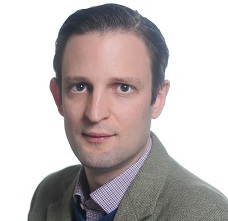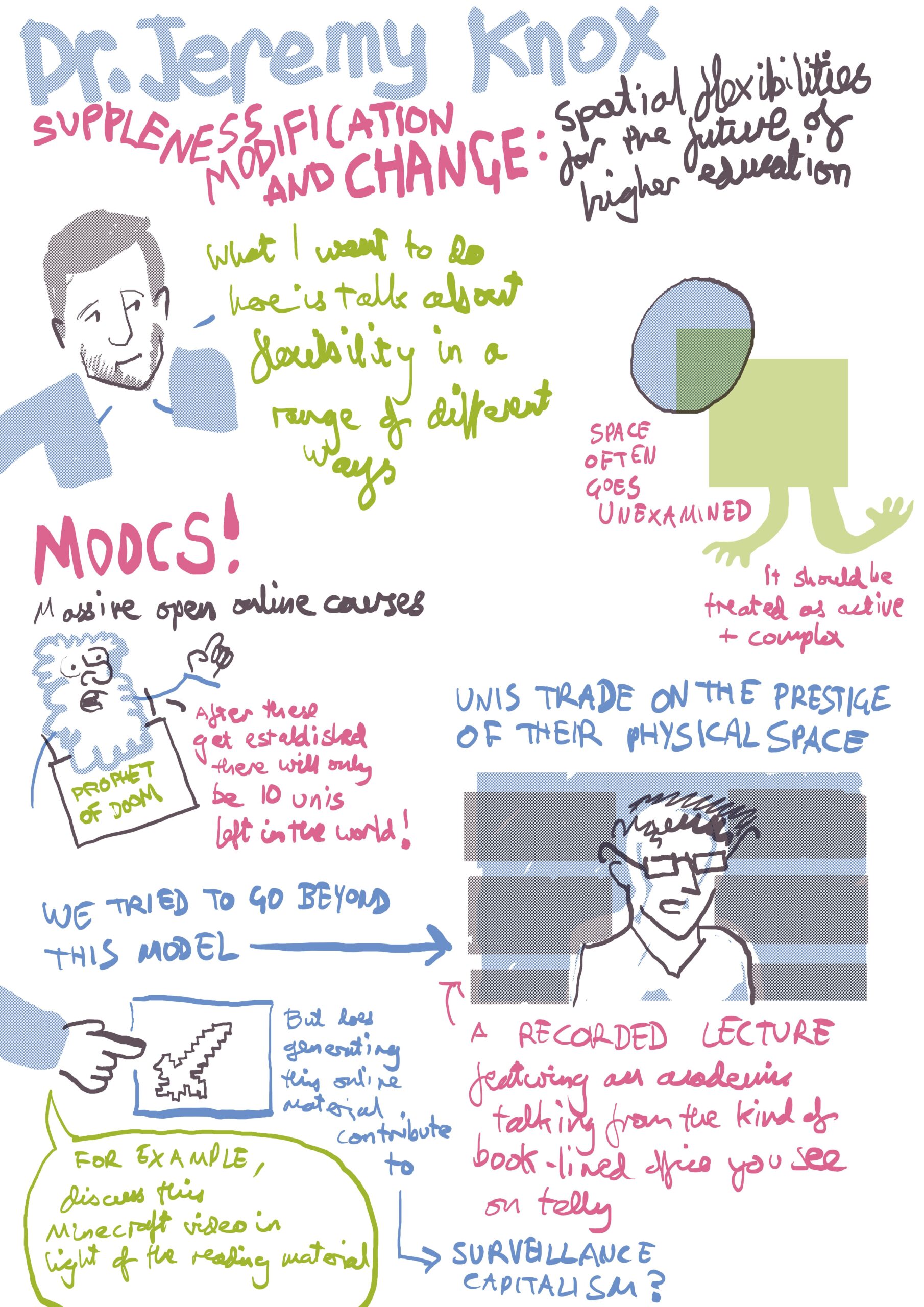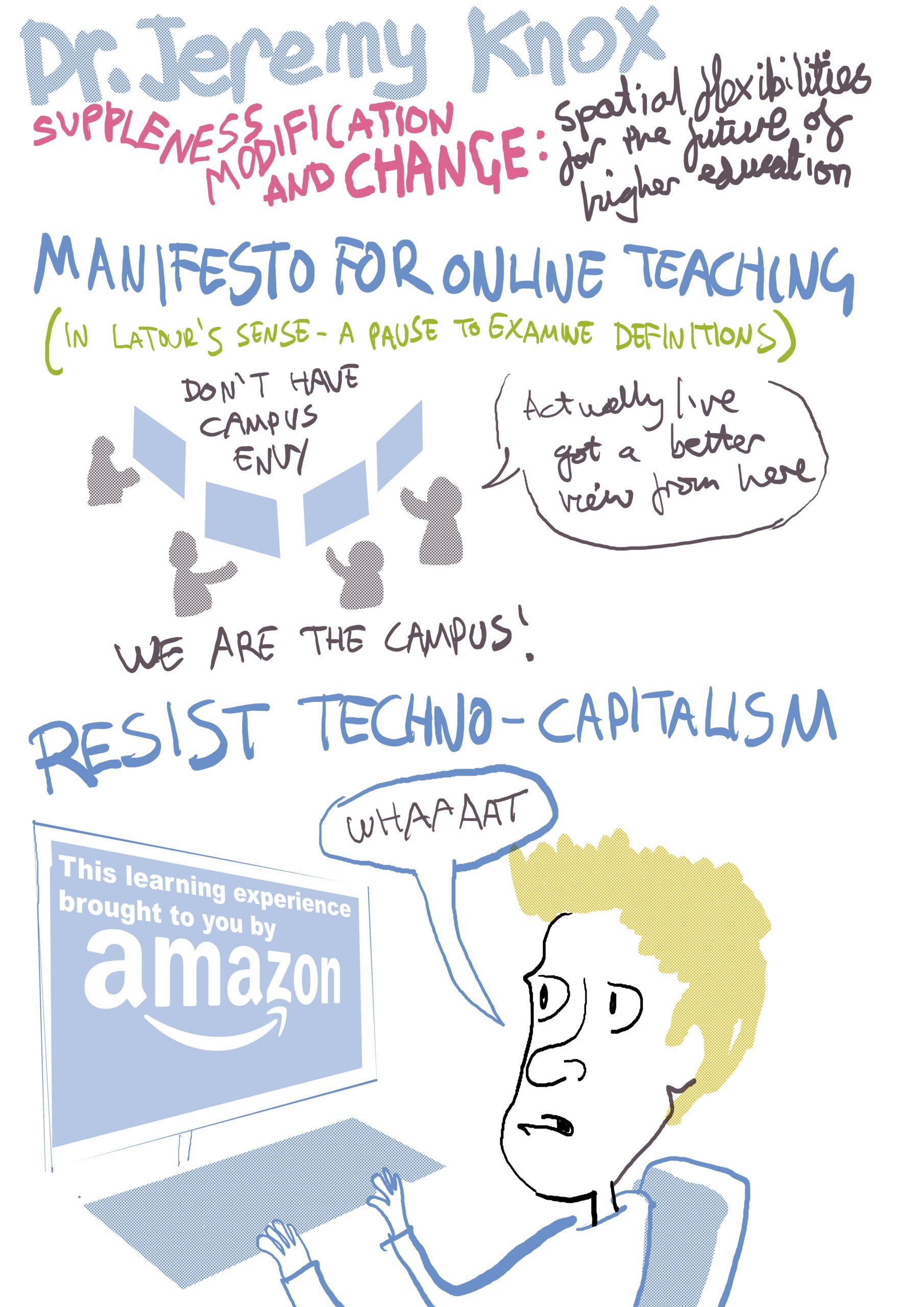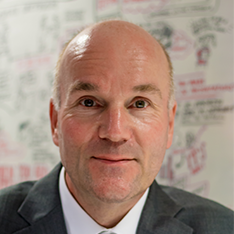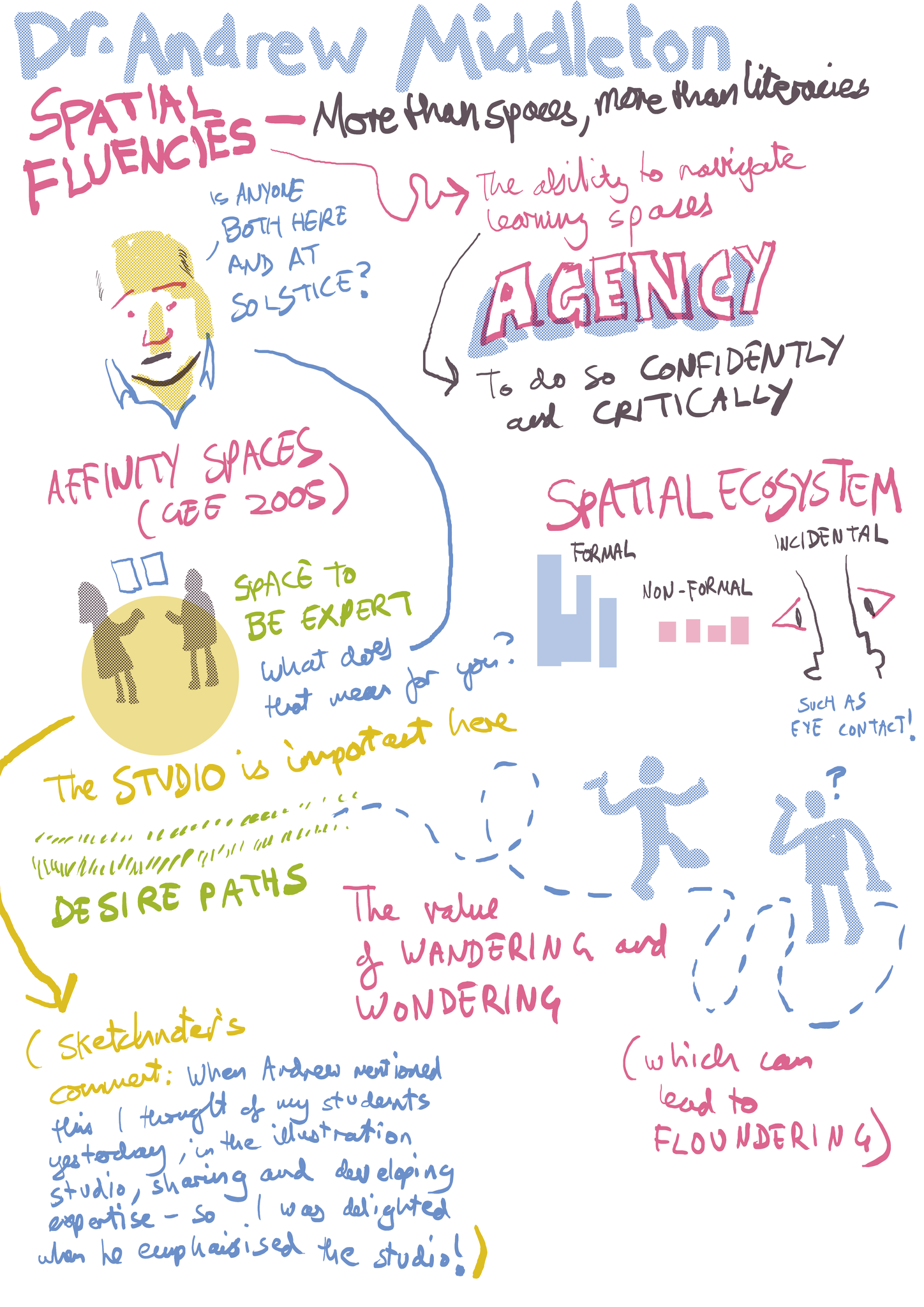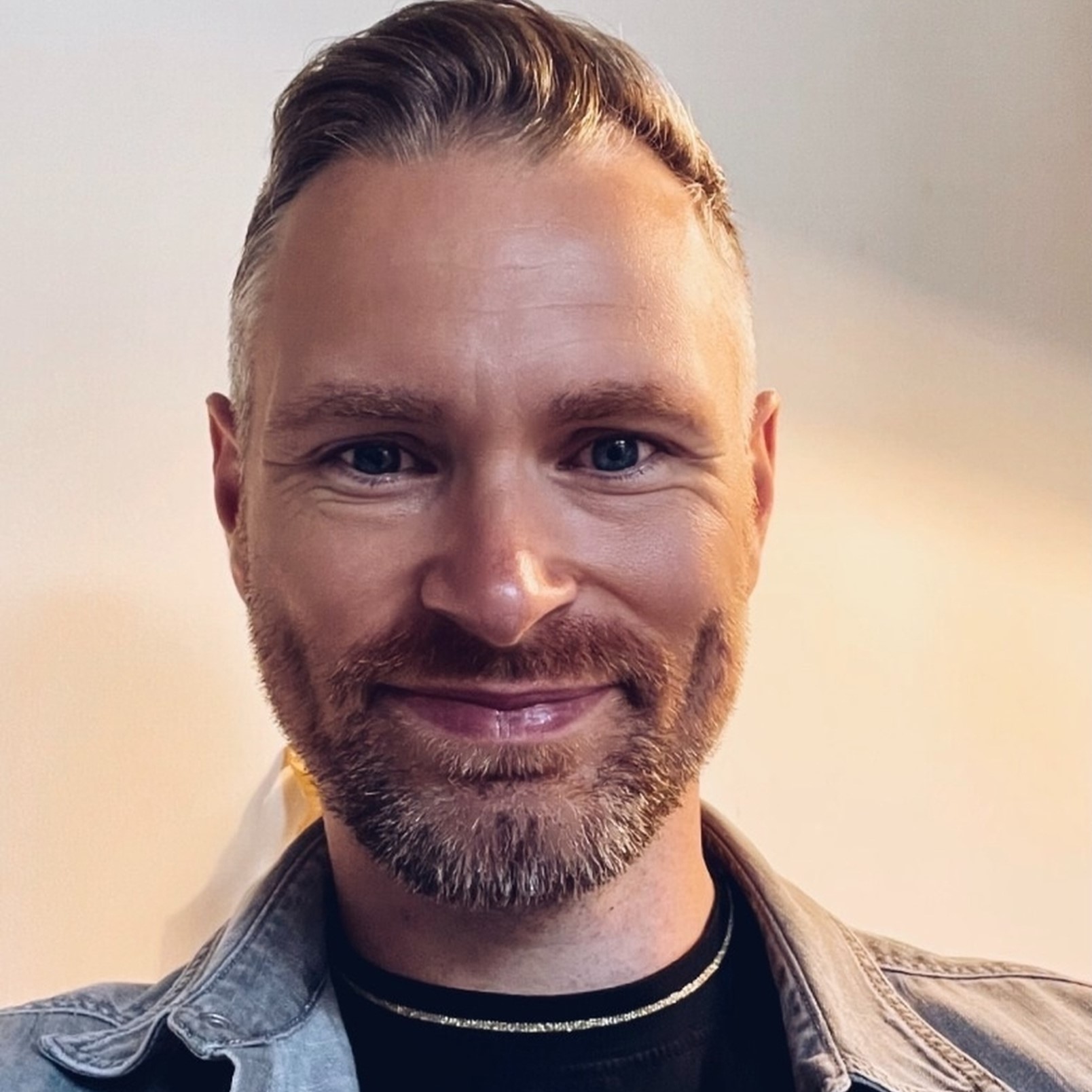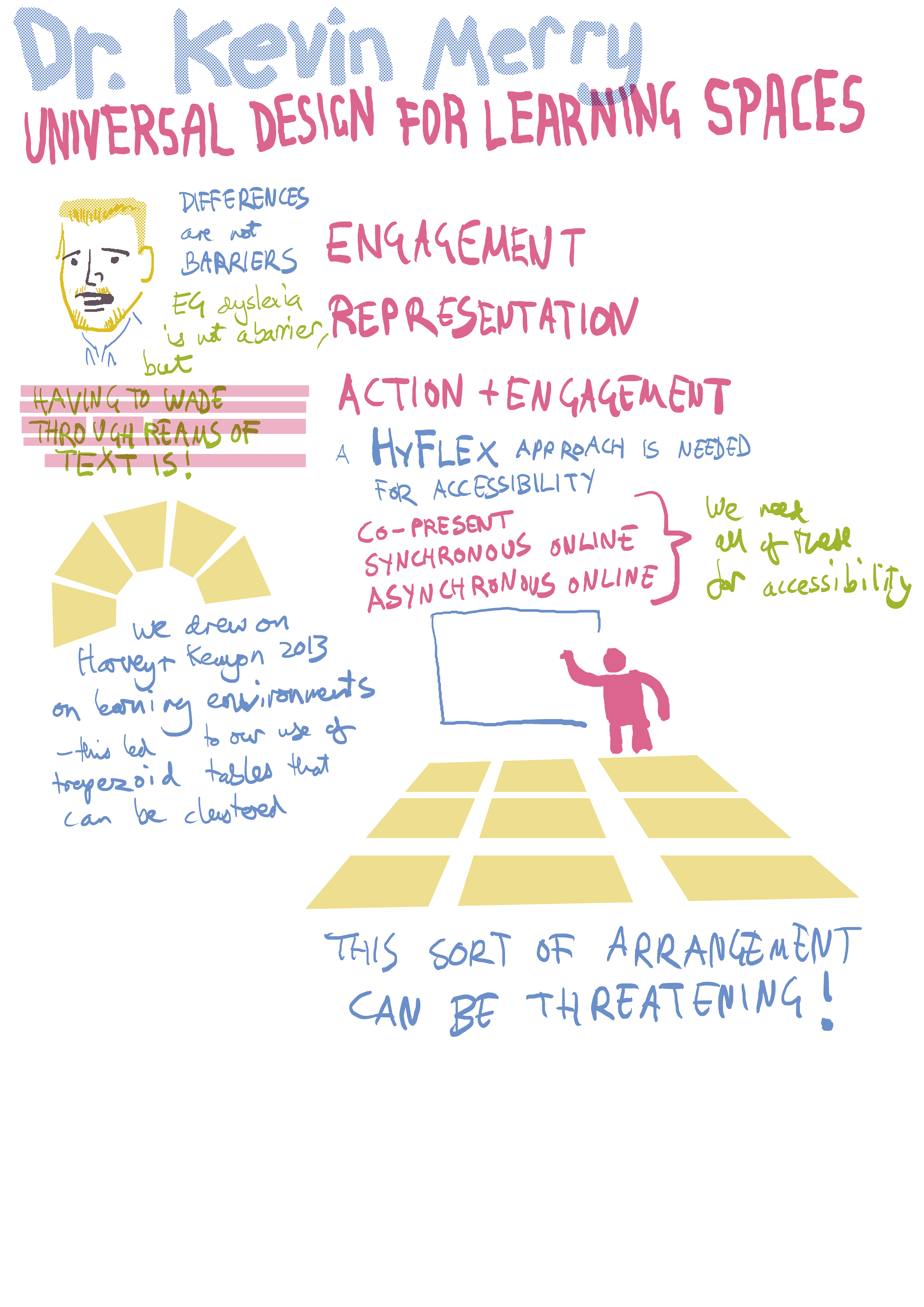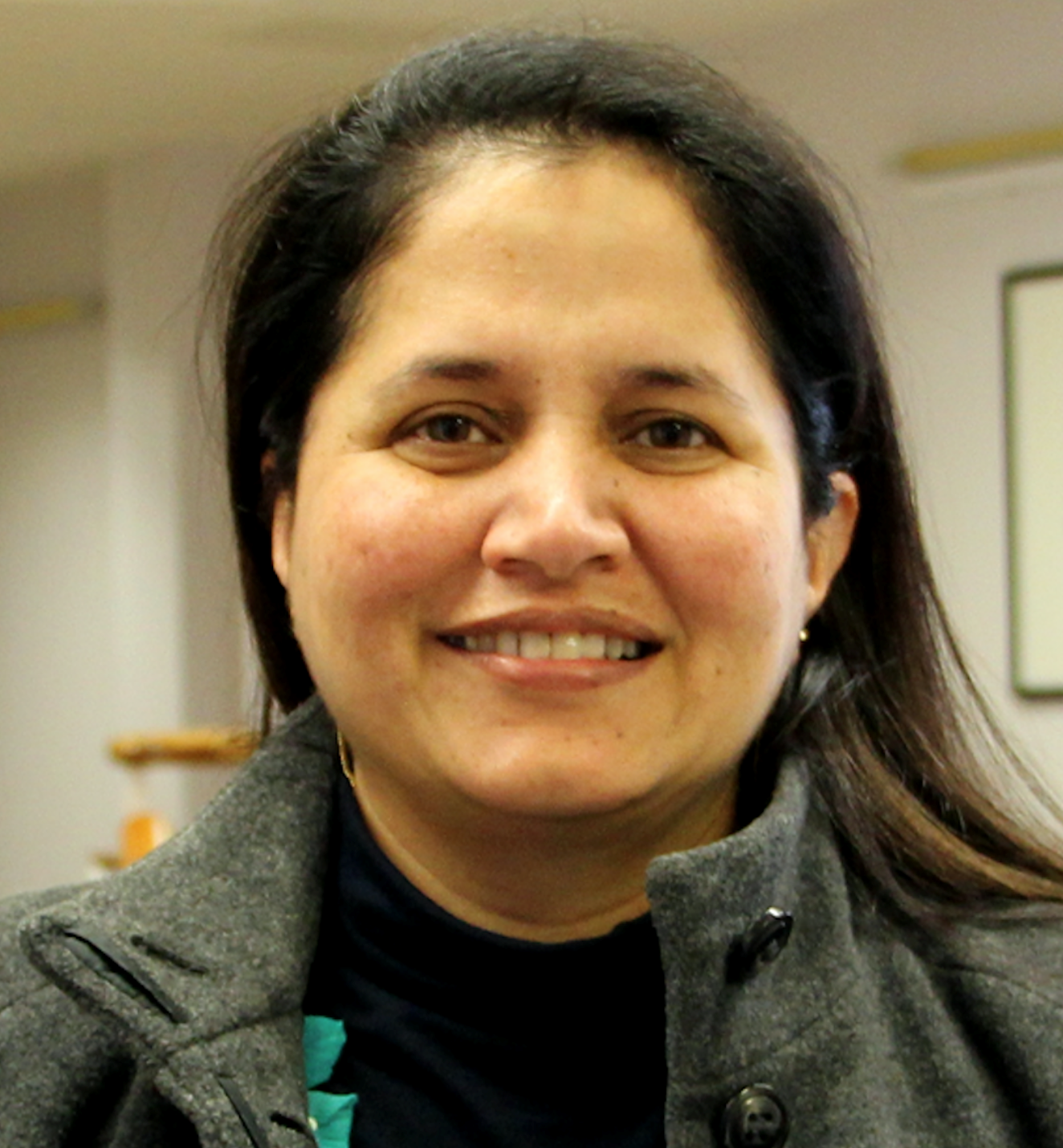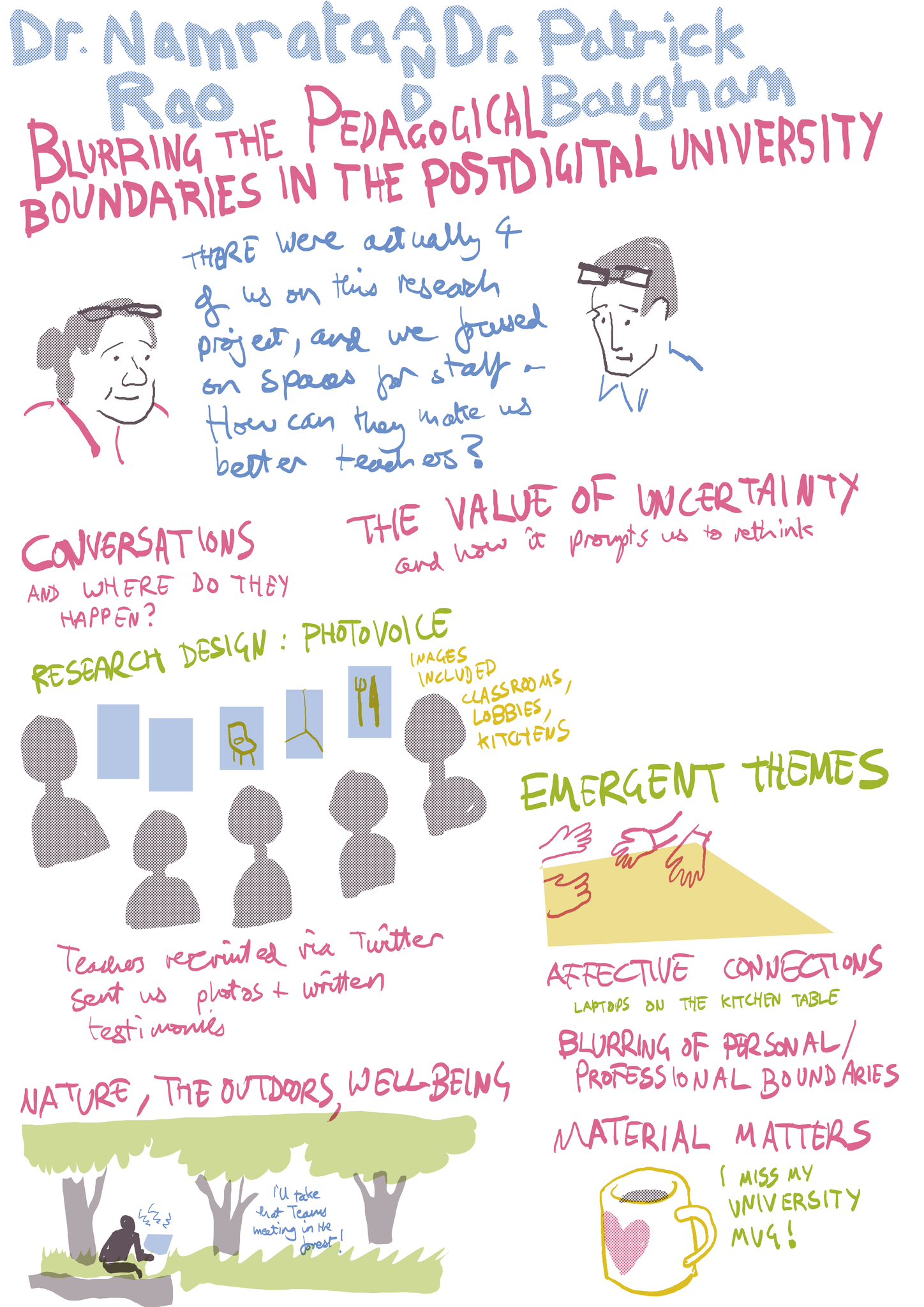For full information about the background and context for this this series on Landscapes of Learning for Unknown Futures: Prospects for Space in Higher Education please click here.
Introduction
It has never been more important to have a critical understanding of the complex association(s) between digital technologies and spaces in and around higher education (HE). Change and emerging innovation in educational technology is shifting expectations, practices, and discourse around how learning is situated in space and time, extending the locus of student learning experiences both across and beyond the physical campus. The purpose of this three-part Symposia Series is to provoke a critical examination of the changing relationship(s) between digital technologies and learning space, and an exploration of the possibilities for new configurations of learning activities and interactions. The intention is to move beyond totalising critiques of HE learning spaces, and instead consider places for learning according to the level of complexity and depth that they exhibit and the neoteric topologies of connection, social meaning, and practice that they promote. In a networked world, the links between cooperative action and spatial proximity have been broken. The concept of learning landscape is offered as a way of exploring the range of learning spaces that are needed to better align with changing patterns of learning and increasing proliferation of digital technologies. We are yet to properly conceptualise this emerging, pluralised, learning landscape in terms of the relationship between pedagogy, technology, and nascent configurations of learning spaces and environments.
In response, this Symposia Series brings together and engages key stakeholders in a timely discussion and debate to support new thinking in decision-making, policy, and practice as we consider the promise of future landscapes of learning in HE through the prism of three thematic lenses: networks, assemblages, and flexibilities. Each of these lenses represents the conceptual focus for a Symposium with the aim of providing designated space and scope for interrogating a range of theoretical and applied interpretations and perspectives, and generating collaborative, reflexive discussions, and debate.
The second Symposium explores the idea of flexibility as a critical aspect of how learning is situated relative to the demands of students for greater control in fitting their studies around their learning needs and preferences, as well as other aspects of their lives. Such a view implies a widening and loosening of the boundaries of conventional learning spaces to provide greater potential flexibility in how, where, and when learning happens.
Format
Each session will feature a keynote address, paper presentations, and a panel discussion. The format is an experimental hybrid approach, hosted face-to-face at SRHE’s premises in London but with key elements available to remote participants either synchronously or asynchronously:
- Face-to-face participants will engage live and synchronously with each element, have opportunities for networking with presenters and fellow attendees, and be hosted for lunch by SRHE.
- Remote participants will be able to engage with the keynote address via live stream (and will be prioritised in Q&A), will receive recordings of each paper presentation, and receive a written digest of the panel discussion following the event.
Both face-to-face and remote participants are invited to contribute prompt questions for our panellists via the event Padlet (please check your event booking confirmation for the link).
Please note that this event is free for SRHE members whether attending in-person or remotely. In-person spaces are limited - please let us know if you cannot attend.
Schedule
|
11:00 – 11:15 |
Welcome & introductions |
|
11:15 – 12:15 |
Keynote: Dr Jeremy Knox (University of Edinburgh) Suppleness, modification, and change: spatial flexibilities for the future of higher education Including Q&A from remote participants |
| 12:15 – 12:25 | Comfort break |
|
12:25 – 13:45 |
3 x 20-minute lead presentations:
Spatial fluencies – more than spaces, more than literacies
Universal Design for Learning Spaces
Blurring the Pedagogical Boundaries in the Postdigital University There will be 5 mins for Q&A after each presentation |
|
13:45 – 14:30 |
Lunch break |
|
14:30 – 15:30 |
Panel discussion (keynote and lead presenters) |
|
15:30 – 16:00 |
Closing comments & event close |
Presentation abstracts & speaker information (with thanks to John Myers at johnmiers.com for the accompanying sketches)
Keynote
Suppleness, modification, and change: spatial flexibilities for the future of higher education
Dr. Jeremy Knox (University of Edinburgh)
Building on the examination of assemblages and networks in previous symposia, this talk will foreground flexibility as an overarching theme for a critical and creative (re)conceptualisation of learning space within the hybrid and postpandemic university. While recent lockdowns and institutional closures have propelled digital environments into the mainstream of higher education provision, such ‘emergency’ responses should be understood within a broader context of research and practice that has long sought to de-centre the physical classroom and negotiate learning spaces beyond the bricks-and-mortar of the university campus. Drawing on spatial and sociomaterial theories which posit a relational ontology of interwoven people, places, and technologies, this talk will outline three interpretations of ‘flexibility’ that might guide the critical discussion and development of future higher educational space: 1) ‘suppleness’, inferring institutional agility and responsiveness; 2) a ‘capacity for modification’, addressing student diversity; and 3) a ‘willingness to change’, foregrounding questions of teacher agency.
Paper Presenters
Spatial fluencies – more than spaces, more than literacies
Dr. Andrew Middleton, Anglia Ruskin University
Spatial fluency describes an individual’s ability to successfully and confidently navigate and negotiate spaces for learning. In the pandemic agility and agency became a necessity for academics and their students. Now, in contemporary life, including educational and professional settings, the need for spatial fluency permeates our lifewide experience. Conceptually, spatial fluency helps educationalists to resituate learning outcomes in terms of assertive acts of boundary crossing, managing competing life responsibilities, and experiential agency. It reframes discourse on digital literacies to one of learning ecologies and assemblages in which a student comes to make their place within a network setting. In this presentation we will consider examples of hybridity, multimodality and polycontextuality, and the challenges and rich opportunities they create for learning, working, and living.
Universal Design for Learning Spaces
Dr. Kevin Merry (De Montfort University)
UDL recognises variability in relation to how learners are challenged and motivated by learning, and how they persist with learning in the face of challenge (Engagement), how they acquire and use information related to learning such as language and symbols (Representation), and how they communicate and demonstrate their understanding (Action & Expression). Successful implementation of UDL is largely about providing flexible options across each of the aforementioned areas to reduce or remove barriers. Barriers are environmental, meaning they are part of the design of the culture, context, approach, and physical setting in which learning takes place. This symposium will explore how the physical learning environment can create barriers to effective Engagement, Representation and Action & Expression among diverse communities of learners. Specifically, the symposium will explore how barriers can unknowingly be created in learning spaces and present some potential approaches supporting their reduction or removal.
Blurring the Pedagogical Boundaries in the Postdigital University
Dr. Namrata Rao (Liverpool Hope University & Dr. Patrick Baughan (The University of Law)
Our presentation will consider the fluid and rigid spaces and places for learning and teaching connections that exist within higher education. Employing an adapted version of the ‘photovoice’ research approach, we examine the significance of spaces and places for facilitating learning and teaching connections, and the implications these have for the teaching practices in the sector. Further, we seek to draw attention to the spaces available to educators for their own pedagogical development and examine the nature of these spaces. Our findings are considered in relation to the impact of the Covid-19 pandemic, when opportunities for interaction had suddenly and drastically changed. We engage sociomaterial and spatial concepts to examine how spaces entangle and enrich university teachers’ experiences. Our data reveals how the move to digital and hybrid learning is blurring the boundaries of spaces and places, disrupting and reconfiguring what it means to teach and to learn in a postdigital higher education landscape.
A recording of this session can be accessed by clicking here. Passcode: J5As$z6Y
Follow-up blog posts from this event are detailed below
- Prospects for Space in Higher Education – Reflections on Flexibilities Symposium by Sam Elkington and Jill Dickinson
- When tending learning landscapes, what matters most? by Pippa Yeoman
And a summary of the presenter responses to questions raised during this session is also available from the resource section below
United Kingdom
| Online participants | £0.00 |
| Non-member in person | £75.00 |
| Member in person | £0.00 |
Resources
|


